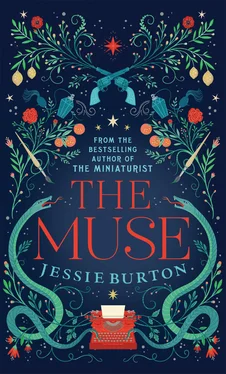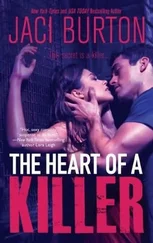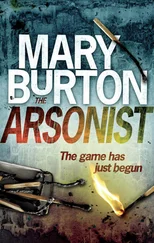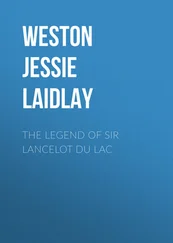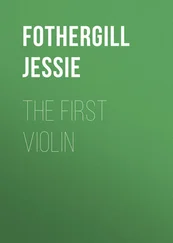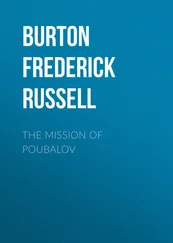for
Alice, Teasel
and Pip
Never again will a single story be told as though it were the only one.
JOHN BERGER
Not all of us receive the ends that we deserve. Many moments that change a life’s course — a conversation with a stranger on a ship, for example — are pure luck. And yet no one writes you a letter, or chooses you as their confessor, without good reason. This is what she taught me: you have to be ready in order to be lucky. You have to put your pieces into play.
When my day came, it was so hot that my armpits had made moons on the blouse the shoe shop supplied to every employee. ‘It don’t matter what size,’ the woman said, dabbing herself with a handkerchief. My shoulders were aching, my fingertips chafing. I stared; sweat had turned the pale hair at her brow the colour of a wet mouse. London heat; it never has anywhere to go. I didn’t know it, but this woman was the last customer I would ever have to serve.
‘I’m sorry?’
‘Just said ,’ the woman sighed. ‘Any size’ll do.’
It was nearing closing time, which meant all the crumbs of dry skin — toe jam, as we called it — would have to be hoovered out of the carpet. Cynth always said we could have moulded a whole foot out of those scrapings, a monster to dance a jig of its own. She liked her job at Dolcis Shoes, and she’d got me mine — but within an hour of our shift, I craved the cool of my room, my cheap notebooks, my pencil waiting by the narrow bed. ‘Girl, you got to pick your face up ,’ Cynth would whisper. ‘Or you working in the funeral parlour next door?’
I backed away to the stock cupboard, a place where I would often escape, immune as I was by now to its noxious smell of rubbered soles. I thought I might go in and scream silently at the wall of boxes.
‘Wait! Oi, wait,’ the woman called after me. When she was sure she had my attention, she bent low and slipped off her scuffed pump, revealing a foot that had no toes. Not one. A smooth stump, a block of flesh resting innocently on the faded carpet.
‘See,’ she said, her voice defeated as she kicked off the second shoe to reveal an identical state of affairs. ‘I just. . stuff the ends with paper, so it don’t matter what size you bring.’
It was a sight, and I have not forgotten it; the Englishwoman who showed me her toeless feet. At the time, perhaps I was repulsed. We always say the young have little truck with ugliness, have not learned to mask shock. I wasn’t that young, really; twenty-six. I don’t know what I did in the moment, but I do recall telling Cynth, on the way home to the flat we shared off Clapham Common, and her whooping with delighted horror at the thought of those toeless feet. ‘Stumpy McGee!’ she shouted. ‘She comin’ to get yuh, Delly!’ And then, with an optimistic pragmatism; ‘At least she wear any shoe she want.’
Perhaps that woman was a witch coming to herald the change in my path. I don’t believe so; a different woman did that. But her presence does seem a macabre end to that chapter of my life. Did she see in me a kindred vulnerability? Did she and I occupy a space where our only option was to fill the gap with paper? I don’t know. There does remain the very slim possibility that all she wanted was a new pair of shoes. And yet I always think of her as something from a fairy tale, because that was the day that everything changed.
Over the last five years since sailing to England from Port of Spain, I’d applied for many other jobs, and heard nothing. As the train from Southampton chugged into Waterloo, Cynth had mistaken house chimneys for factories, the promise of plenty of work. It was a promise that turned out to be harder to fulfil. I often fantasized about leaving Dolcis, once applying to a national newspaper to work as a tea-girl. Back home, with my degree and self-regard, I would never have dreamed of serving any soul tea, but Cynth had said, ‘A one-eye stone-deaf limping frog could do that job, and they still won’t give it to you, Odelle.’
Cynth, with whom I had gone to school, and with whom I had travelled to England, had become besotted with two things: shoes, and her fiancé, Samuel, whom she had met at our local church off Clapham High Street. (Sam turned out to be a great bonus, given the place was normally full of old tanties telling us about the good old days.) Because of finding him, Cynth did not strain at the bit as I did, and it could be a source of tension between us. I would often declare that I couldn’t take it any more, that I wasn’t like her, and Cynth would say, ‘Oh, because I some sheep and you so clever ?’
I had telephoned so many advertisements which stated experience was not essential, and people sounded so nice — and then I’d turn up and miracle, miracle! every single job had been taken. And yet, call it folly, call it my pursuit of a just inheritance, but I kept on applying. The latest — and the best I’d ever seen — was a typist post at the Skelton Institute of Art, a place of pillars and porticoes. I’d even visited it once, on my monthly Saturday off. I’d spent the day wandering the rooms, moving from Gainsborough to Chagall, via aquatints by William Blake. On the train home to Clapham, a little girl gazed at me as if I was a painting. Her small fingers reached out and rubbed my earlobe, and she asked her mother, ‘Does it come off?’ Her mother didn’t chide: she looked like she damn well wanted the earlobe to give its answer.
I hadn’t scrapped with the boys to gain a first-class English Literature degree from the University of the West Indies for nothing. I hadn’t endured a child’s pinch in a train carriage, for nothing. Back home, the British Consulate itself had awarded me the Commonwealth Students’ first prize for my poem, ‘Caribbean Spider-Lily’. I’m sorry, Cynth, but I was not going to put shoes on sweaty Cinderellas for the rest of my life. There were tears, of course, mainly sobbed into my sagging pillow. The pressure of desire curdled inside me. I was ashamed of it, and yet it defined me. I had bigger things I wanted to do, and I’d done five years of waiting. In the meantime, I wrote revenge poems about the English weather, and lied to my mother that London was heaven.
The letter was on the mat when Cynth and I got home. I kicked off my shoes and stood stock-still in the hallway. The postmark was London W.1, the centre of the world. The Victorian tiles under my bare feet were cold; my toes flexed upon the brown and blue. I slid one finger under the flap of the envelope, lifting it like a broken leaf. It was the Skelton Institute letterhead.
‘Well?’ Cynth said.
I didn’t reply, one fingernail pressed into the floral Braille of our landlord’s Anaglypta wallpaper, as I read to the end in shock.
The Skelton Institute
Skelton Square
London, W.1
16th June, 1967
Dear Miss Bastien,
Thank you for sending your application letter and curriculum vitae.
To thrive, under whatever circumstances life presents us, is all anyone can hope for. You are clearly a young woman of great ability, amply armoured. To that degree, I am delighted to invite you to a week’s trial role in the typist position.
There is much to learn, and most of it must be learned alone. If this arrangement suits you, please advise me by return of post whether the offer is to be accepted, and we will proceed from there. The starting salary is £10 p/w.
With warm wishes,
Marjorie Quick
Читать дальше
